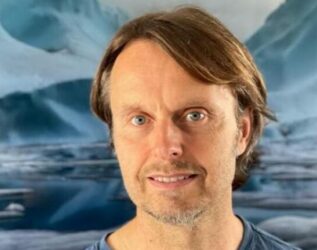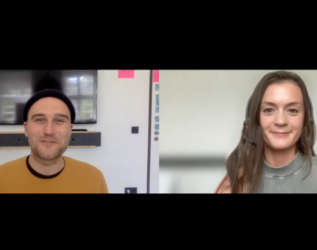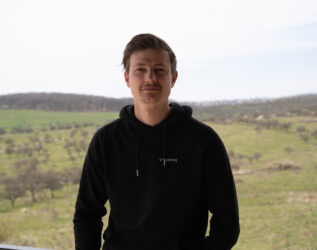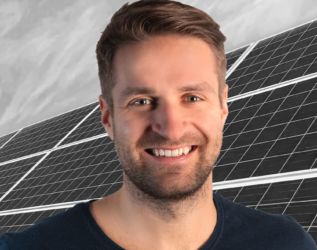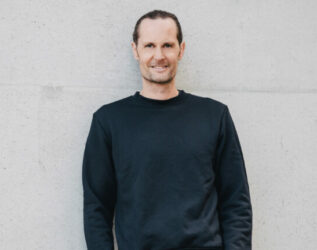Philip Specht joins AENU as Partner based in Munich
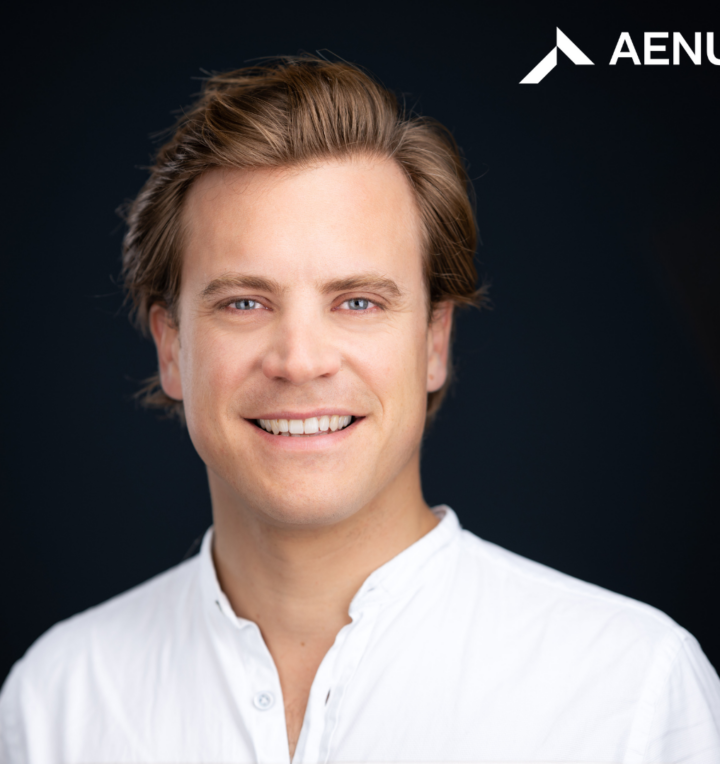
We are thrilled to announce that Philip Specht has joined our AENU team as a new Partner based in Munich. Previously a Partner at Speedinvest, Philip is the first Partner transitioning from a Tier-A generalist VC into an Article 9 climate impact fund. To mark this occasion, he conducted an interview with Alexander Hüsing from Deutsche-startups.de.
For the original German version of “Deutsche Startups”, please click here.
Alex: Let’s talk about money. Over the past six years, you’ve been with Speedinvest, and now you’re looking for exciting startups at the emerging impact investor AENU. How did this transition come about?
Philip: Until recently, a job change was hardly imaginable for me. I had been with Speedinvest since 2018 with great enthusiasm and had the opportunity to witness the fund’s evolution into one of Europe’s leading early-stage investors. At the same time, I’ve long been interested in impact and climate change related topics. . When the AENU team approached me, an unexpected opportunity arose that I couldn’t resist. AENU was founded in 2021 by the Heidemann brothers to advance impact investing and establish it as a core component of the VC ecosystem alongside other impact investors. We position ourselves as the go-to fund for founders who aim to achieve massive climate impact or social impact from a heartfelt mission while simultaneously striving for extraordinary economic success. In short: we chase impact unicorns.
Alex: More and more climate-tech and impact funds are being established – why did you choose AENU?
Philip: First and foremost, I was impressed by how deeply AENU is advancing the impact agenda, encompassing both the vision, the scientific approach, and personal activism. Additionally, the Heilemann brothers’ exceptional commercial track record stood out to me: startup experience as founders of the Berlin-based logistics unicorn Forto, M&A experience from their exit of Dailydeal to Google, and years of investor experience at one of Germany’s most renowned VC funds, Earlybird. The combination of these factors results in a unique level of experience and a distinctive positioning in the European impact and climate tech sector that convinced me – just as it has persuaded the founders of our now over 20 portfolio companies like Agreena, Alcemy, or Patch to collaborate with us.
Alex: Do you see a growing trend of investors switching from generalist funds to impact funds?
Philip: I don’t see a trend emerging yet; for me, it was a very personal decision. However, I can imagine that I’m not the last one who finds it exciting to further strengthen the impact investing theme. We are certainly still open to interested applicants.
Alex: How does it feel to suddenly compete with your former colleagues for deals?
Philip: As an impact fund, we are inherently collaborative and see ourselves not as competitors but as complementary partners to the major cross-sector VCs. We have already co-invested with HV Capital, Local Globe, NEA, Andreessen Horowitz, and numerous other generalist funds. For example, just last week, our portfolio company Monta, co-invested with Creandum, raised 80 million euros in a follow-on funding round.
Alex: What exactly attracts you to investing in companies?
Philip: Even before my job change, I was particularly drawn to investments that not only bring economic success but also have an ecological or social added value. More exciting than the actual investment is the subsequent close collaboration with the companies and the support of founders in achieving their goals. As for the targets, at AENU, we have set high impact requirements; otherwise, we don’t invest. For example, every technology from our climate-tech startups must have the potential to reduce a certain threshold of CO2 emissions. Across our portfolio, this quickly adds up to significant amounts. Our portfolio companies have already collectively reduced over 2 million tonnes of CO2 emissions – roughly equivalent to the annual CO2 emissions of all domestic air travel in Germany.
Alex: In the VC world, often large sums of money are handled; do you ever feel uneasy about these amounts?
Philip: I feel uneasy when I think about the possibility of Donald Trump’s reelection – less so when it comes to providing much-needed risk capital to ambitious founders with good ideas in the fight against climate change. Nevertheless, the magnitude of the amounts we invest does command due respect. As investors, we bear a great responsibility for the capital and trust bestowed upon us by our own investors.
Alex: How does one become a venture capital investor – how did you become one?
Philip: The most obvious entry into the VC industry is certainly the one of founders who have had a significant exit. The Skype founder Niklas Zennström with his VC fund Atomico is an example, the Heilemann brothers with AENU another one. However, the vast majority of investors enter the industry through other paths. For me personally, my professional experiences in strategy consulting at BCG and as CCO in a Munich-based SaaS startup were the stepping stones to my first VC job. Some general minimum requirements for anyone new to the industry include an affinity for analytical and entrepreneurial thinking and a good understanding of how tech startups operate.
Alex: There’s still a crisis atmosphere in the German startup scene – especially regarding investments. What are your expectations for the coming months?
Philip: I am cautiously optimistic. 2023 was indeed a challenging year for the VC industry, but inflation and interest rates have stabilized recently. Even when talking to other investors in the market, optimism prevails. This can also be measured in numbers: a recent survey by CRM provider Affinity among 700 private capital investors found that for the year 2024, 90% of investors expect to make either the same amount or more deals compared to the previous year. As for the climate-tech sector, I am very optimistic: it has proven to be more stable than the overall tech market in recent history and is expected to continue growing strongly in the coming years, especially since the journey to net-zero for us as a global community is still a long and challenging one.
